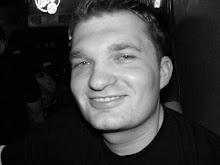My Trigger Finger
(Expounding on Phil Aliff’s piece of the same name)
I have never owned a gun larger than the Daisy BB gun that briefly held my interest when I was a child. As such, the first time I fired a gun was in basic training. To this day, after a one year tour of Baghdad, training exercises remain the only times I have fired a firearm. I still do not know if that is a result of my humanitarian spirit trumping my primal urge to fight or my trigger finger betraying me and my fellow soldiers.
On another hot day in Baghdad, I was presented with two opportunities to put all that training into action and take a human life. I still have nightmares about what happened or, more accurately, what could have happened.
We were convoying down the familiar stretch of Route Irish that connected us to all we did in Baghdad, good and bad. It has been a relatively calm tour for the soldiers of the T-Bird 85 element and the calm was so unbelievable that we were starting to become stir-crazy. I, like always, was a gunner, and my primary job was to keep civilian traffic out of our convoy. As my truck reached the crest of the slowly rising hill and the on-ramp that funneled civilian traffic onto Route Irish, I peeked out over the turret. This was a relatively blind on-ramp for travelers merging onto Irish and I had to be extra vigilant.
Up from the ramp, at a speed that made all of nervous, came a van that appeared to pay no attention to the US Army convoy it was already dangerously close to. My heartbeat raced as I jumped and drew my weapon down on this possible BVIED. From every truck, radio transmissions warned me of the advance and everyone’s mind raced.
Was this the one?
Was this our time to feel the power of hundreds of pounds of explosives?
Was this our chance to strike first and take the fight to the enemy?
AS I leaned further and further outside the turret, fists clenching my rifle as hard as I possibly could, I finally caught a glimpse of what was inside the ominous van. While paranoid soldiers yelled through the radio to fire, I made out a familiar scene. As perhaps seven or eight children horse-played in the rear of the van, a man navigated the vehicle while rotated almost 180 degrees, screaming at them to knock them off. A woman sat to his right in the passenger seat and did the same.
To put it more accurately, what I saw was a man, a husband, a father, doing what he could to parent his children while a woman, a wife, a mother, did the same. As I realized what was actually happening, the questions and pleads over the radio became more and more harassing. I did not want to shoot this man, this husband, this father, but by all measures of the rules of engagement, I had every right to.
As the anxiety of the situation reached its peak, the man finally turned around and saw me and the barrel of my M-4 carbine rifle staring him in the face. With rashness bordering on recklessness, the man sharply swerved to the shoulder as I made one last show of force and sat down, relieved.
I explained that the situation had been resolved and we continued our trek towards Traffic HQ. At the entrance to the police station, traffic was blocked to allow us inside the compound. While my truck waited its turn to enter, a familiar IP truck made its way toward the entrance from the opposite direction . . . towards the entrance and towards us. From where I stood, I could see the IP look me in the eye, point to the entrance, wave, and continue his advance. I yelled, I stood up, I pointed my weapon, but he kept on. With possibly the most aggressive posture I have ever used, I made one last attempt to show how serious I was, and it worked. The truck came to a screeching halt just a few feet from the entrance . . . and our lead truck.
Afterwards, our squad leader and our interpreter explained ot the man in convincing fashion that he was lucky I had not shot him.
Later, one of my comrades approached me and asked why the fuck I hadn’t shot that guy.
“Which one?” I asked.
“Both of them!” he replied.
I told him about the van and the kids and father and family. I told him about the IP mistakenly believing he was an ally and could pass through, but my friend was undeterred and said both should have been shot to send a message.
Months after returning home, I still think about that day and have nightmares about what happened.
I dream of the exact same scenarios with variations. I dream that I again do not pull the trigger and all my friends are killed thanks to a VBIED that I let through.
I dream that my friend is the gunner and he shoots and kills a father and husband over one man’s negligent driving.
I dream that I pull the trigger, get congratulated by my teammates, and am haunted for the rest of my life.
To this day, I do not know if I made a conscious decision based on principle or if I merely froze up and could not bring myself to fire on a human being. Both scenarios only lasted a matter of seconds but they’ll stay with me for decades. It is because of my own experience in that situation that I will never think of another soldier’s reaction to that scenario in terms of black and white.



